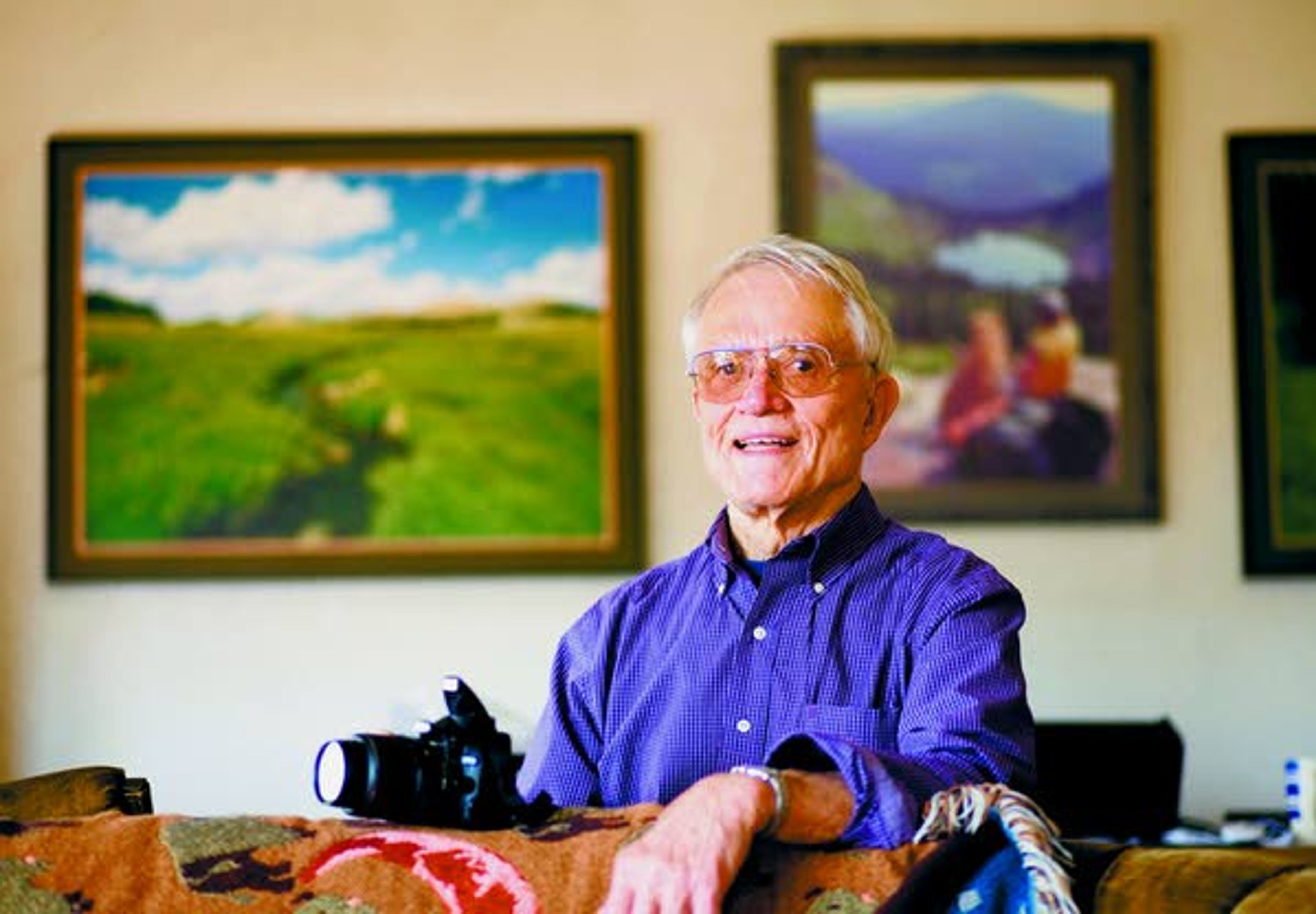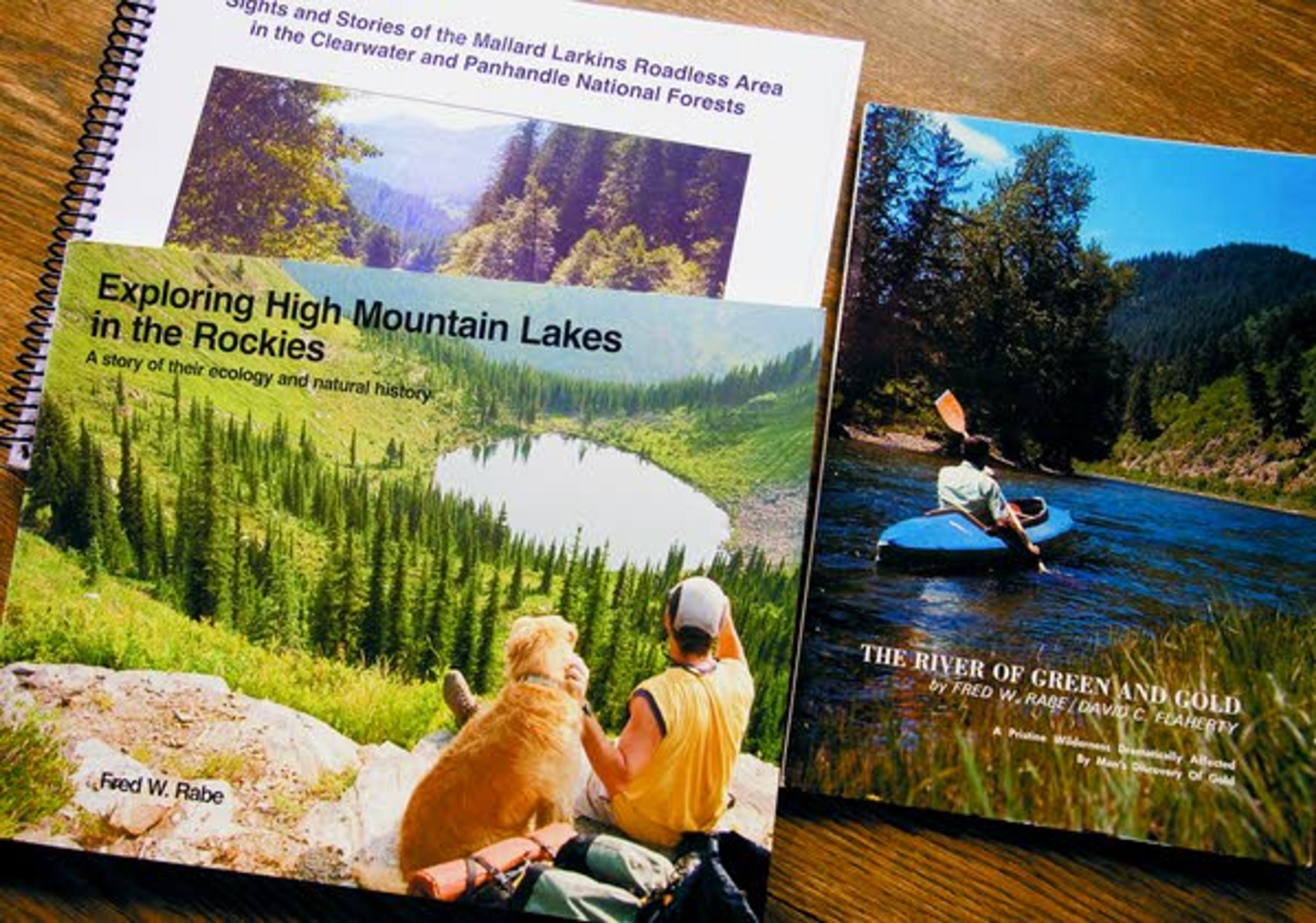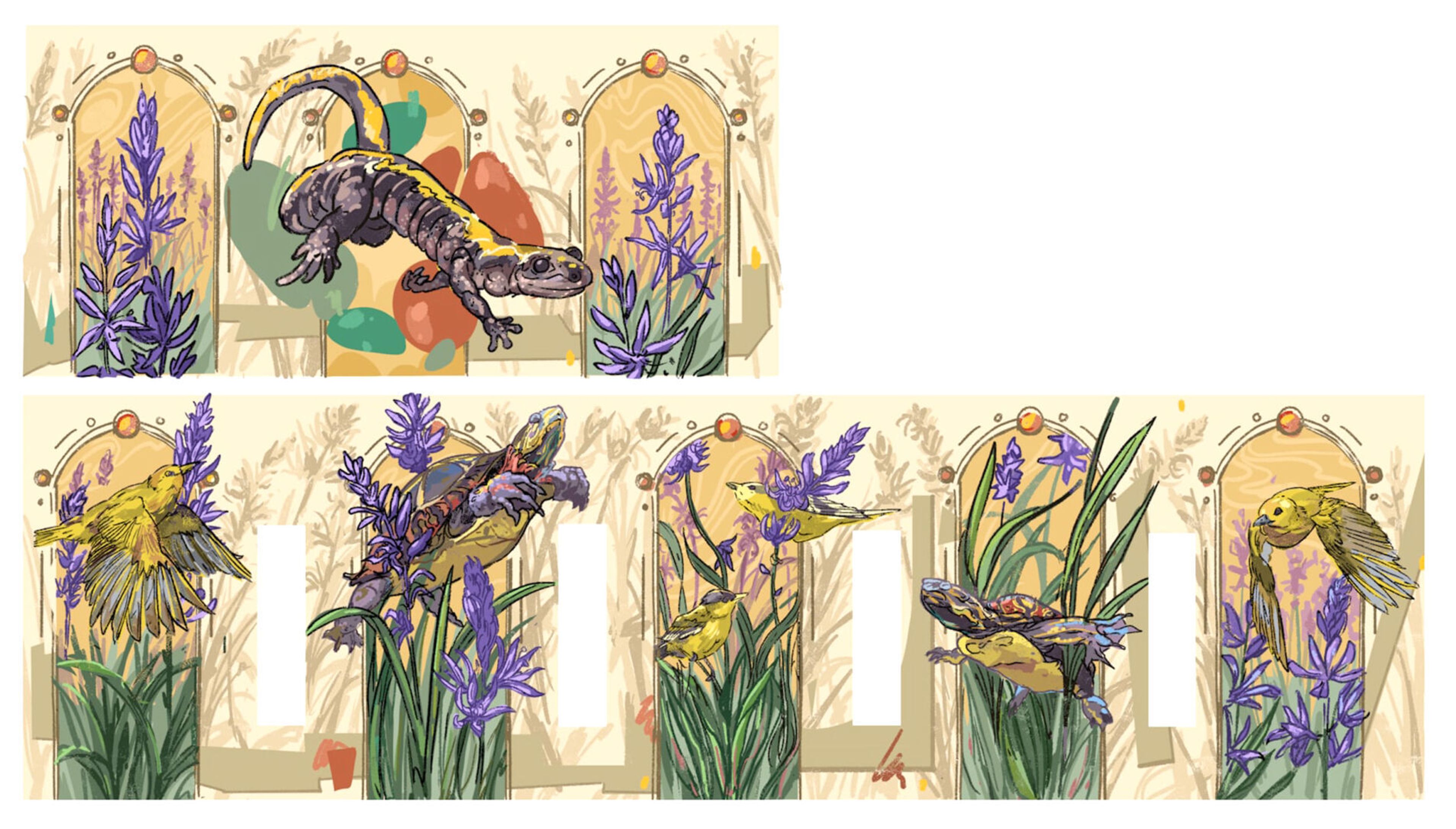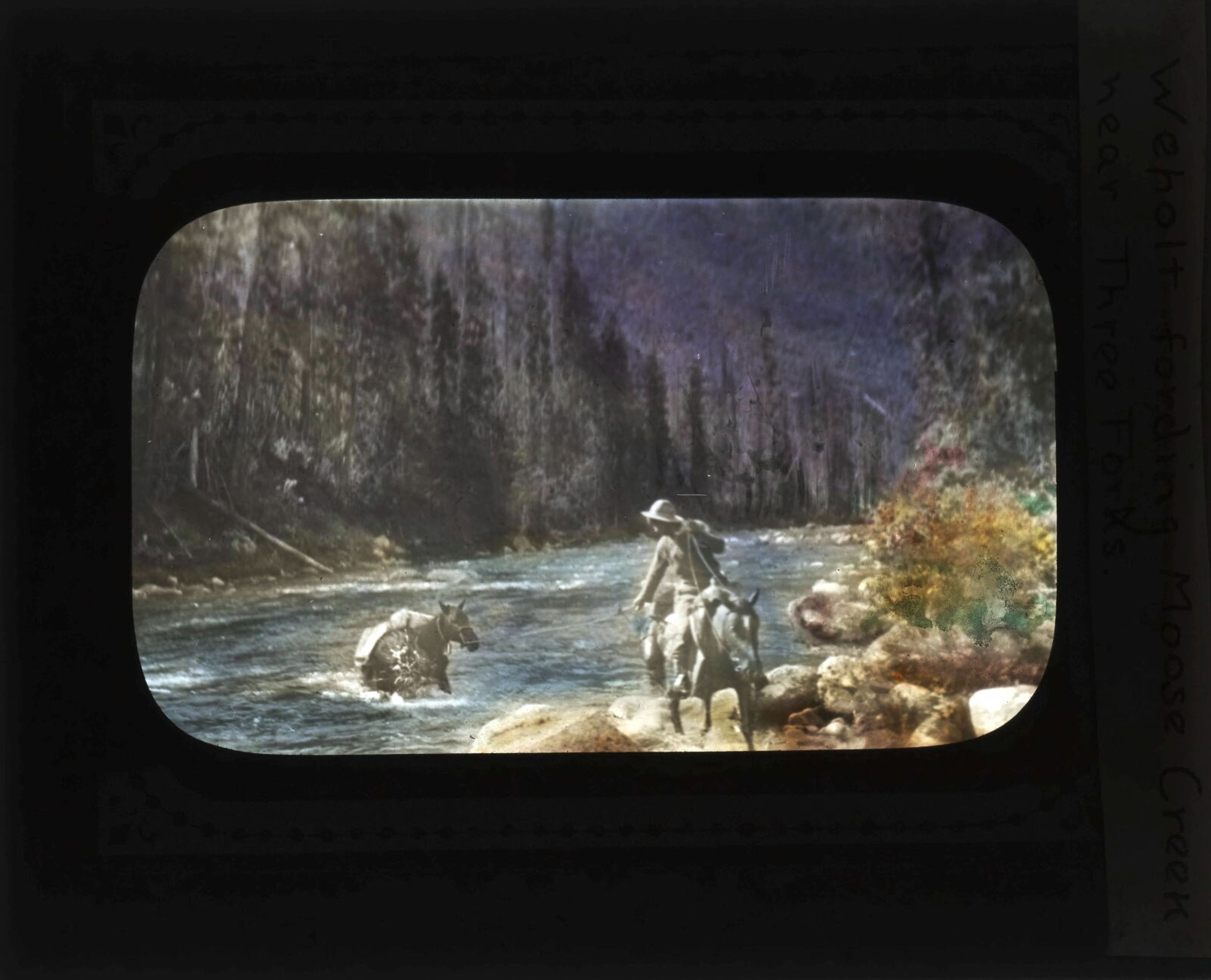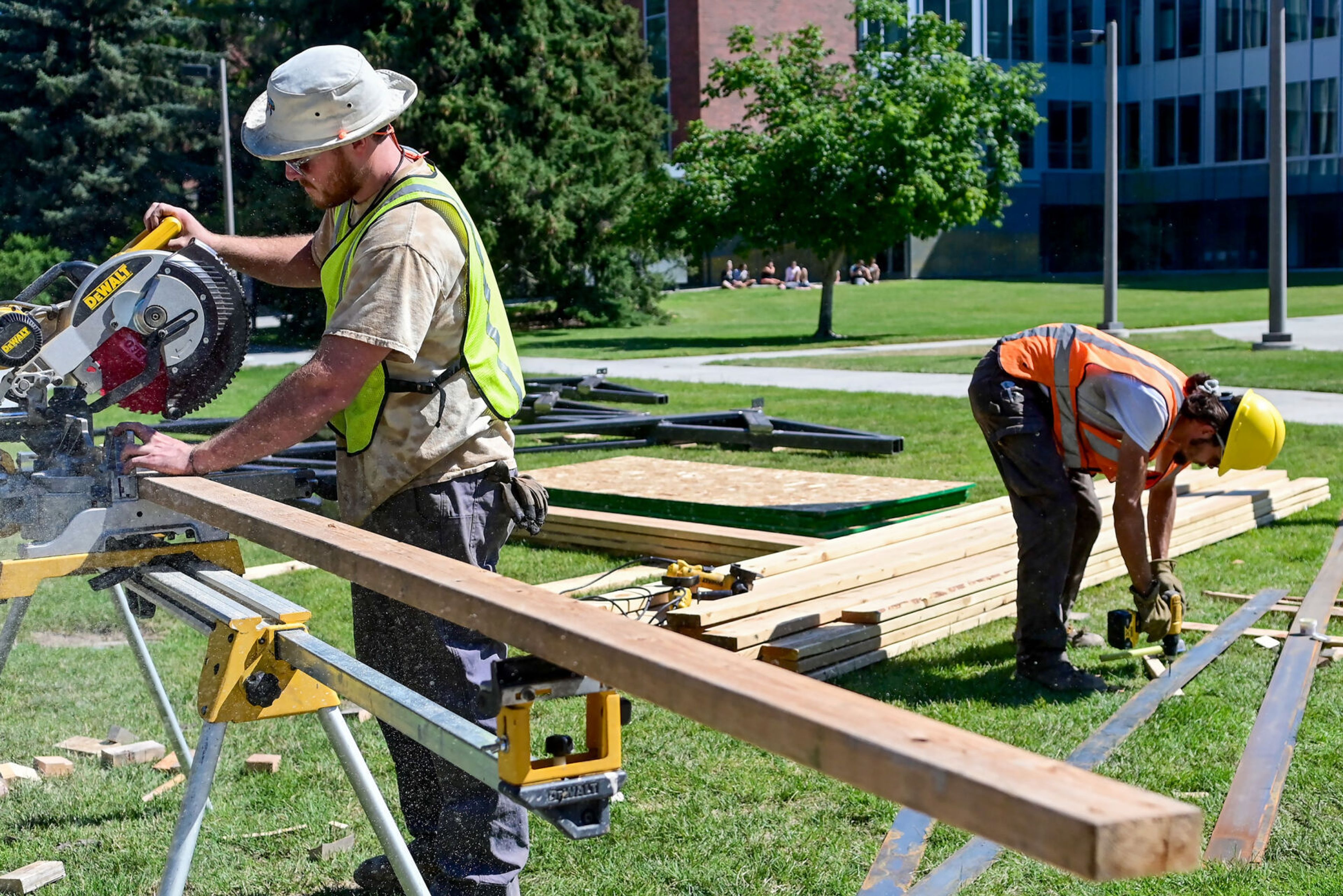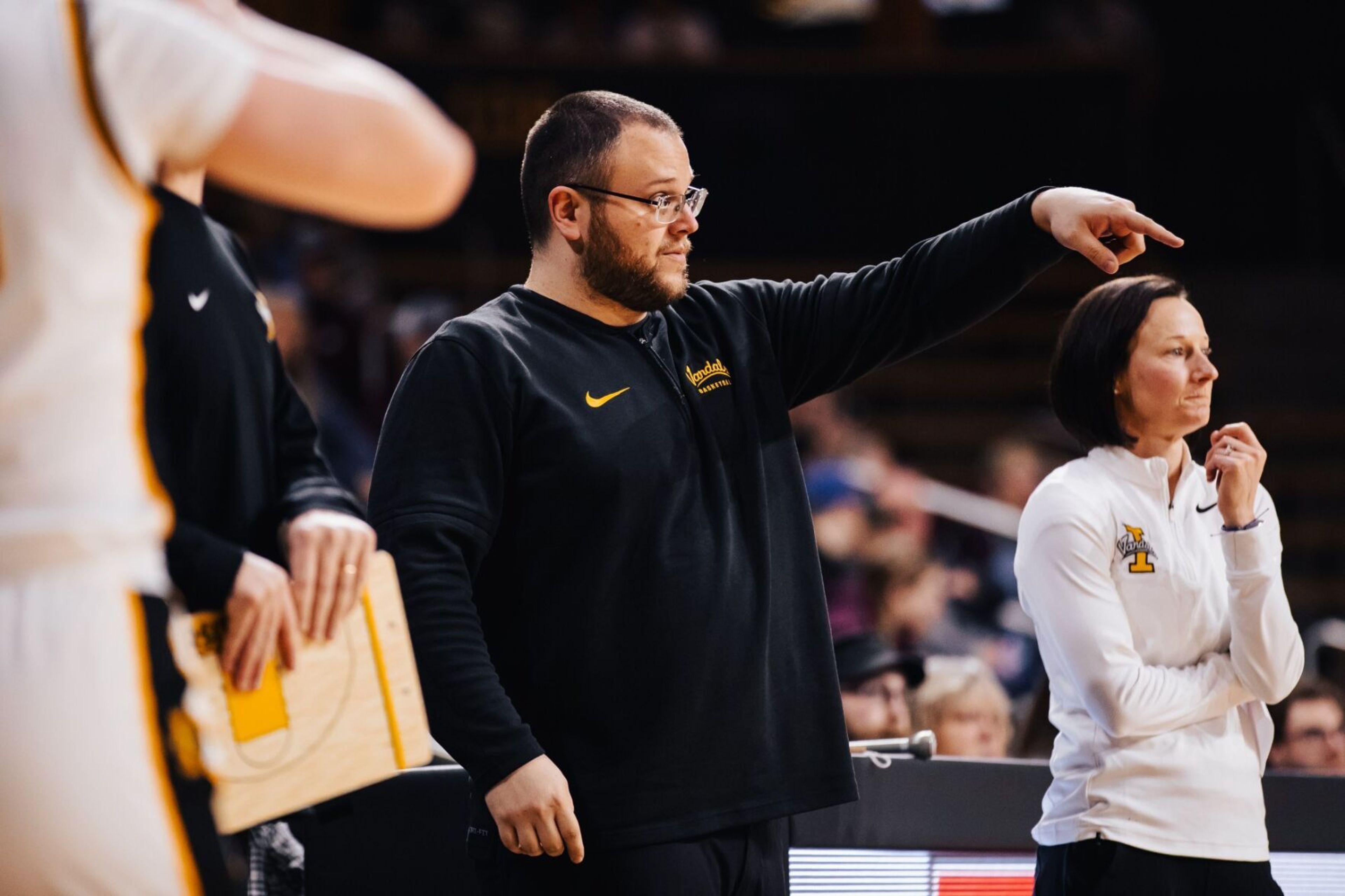Retired UI prof still teaching through photos, books
Retired UI professor still teaching through photos, books
While Fred Rabe has been retired for more than a decade, his work ethic as a University of Idaho professor in ecology, invertebrate zoology and biology has remained.
"After I retired I thought I was sort of bored, and I had done my Ph.D. work on high mountain lakes, so I thought why not just start off in northern Idaho and go all the way to New Mexico and do some work on the ecology of high lakes," Rabe said.
Thus began multiple editions of books on Idaho wildland, such as "Exploring High Mountain Lakes in the Rockies," and roadless areas, like "Lochsa Roadless Areas." In the past eight years, he's written seven. Rabe treks into the wilderness, camera in tow, and photographs areas, such as his favorite spot, Aquarius, home to sandy beaches in the Mallard-Larkins area.
"If you can show people what they're going to see, at least the natural history, then they're going to appreciate it and protect it more," Rabe said, who summarized the places he traveled in his books.
Protecting the land has been a lifelong goal of his. For several years, Rabe collected data to help establish Research Natural Areas, or small tracts of land and water set aside by the U.S. Forest Service to provide terrestrial and aquatic diversity in the state. He's a Friends of the Clearwater board member, and has done work with the Palouse-Clearwater Environmental Institute.
His love of land began at childhood, an attitude he cultivated himself as his parents didn't go outside much. He grew up in Dallas, and one day decided to hitchhike to New Mexico.
"Once I caught my first trout, I never looked back," Rabe said.
Rabe's two sons, Craig and Brad, took after their father. Brad lives in Belgrade, Mont., in the heart of the Rocky Mountains, while Craig works for the Nez Perce tribe as a fishery biologist specializing in salmon.
"I'm to blame for that," Rabe said, laughing.
His life as an instructor, and love of land, rubbed off on many of his students too.
"I took my class to Friday Harbor in the San Juans every fall, and nobody wanted to come home after about week," he said.
With the help of grant money and friend Dave Flaherty, Rabe and his students compiled "The River of Green and Gold," which studied the results of heavy gold mining near Kellogg and Wallace in the Coeur d'Alene River. Rabe tried to create other research projects like this for his students to complete.
"What we tried to do was we had workshops, and we put people to work, doing some work collecting, planning, identifying, doing the macroinvertebrates, the aquatic insects in the streams. We'd take microscopes out in the field, and we'd try identifying things," he said. "This is the way I'd educate people, take them into the field, and the field becomes an outdoor laboratory."
Although, Rabe recalls not being able to engage his students all of the time. While teaching introduction to biology, a 300-student class, he'd use a raven call to wake sleeping students. Rabe means "raven" in German.
Two raven bookends hold up a set of books in Rabe's house, while two ravens perch on a desk and one sits on a pantry overlooking the living room.
He uses his raven call in the wilderness, too. Moscow is surrounded by crows, Rabe said, but once you get into the higher country, ravens are more present.
"They're very intelligent birds," he said. "They also represent a little of the wild."
A few weeks ago, he startled some humans hiking along Lake Coeur d'Alene when he cawed. Despite his age, which he wouldn't disclose, Rabe is still able to hike like someone much younger, and will spend his summer camping in his small trailer, Scamp.
"I'm an old guy, but I feel like I'm in pretty good shape," he said. "I can still hike and still swim."
He can dance, too. A ballroom instructor, Rabe likes to twist and spin in his free time, especially with his pal Kathy Willmes.
"He does a lot of things," Willmes said. "He's such a great role model for us seniors to go ahead and make a difference."
For now, Rabe is focusing on making a difference by turning roadless areas into wilderness. While he's mostly finished documenting all the local roadless areas, as well as photographing them, he's decided to summarize the best of the best into a book called "The Northfork."
"I'd hate to quit this," he said.
And as for making an ecological difference in the community, Rabe said everyone should take a general course in ecology, to be aware of the Earth and dangers humans are presently posing.
"I think global warming probably ranks right up there," Rabe said. "I should say, too, overpopulation. Those two alone are gigantic."
Lindsey Treffry can be reached at (208) 883-4640 or by email to ltreffry@dnews.com. Follow her on Twitter @LindseyTreffry.
